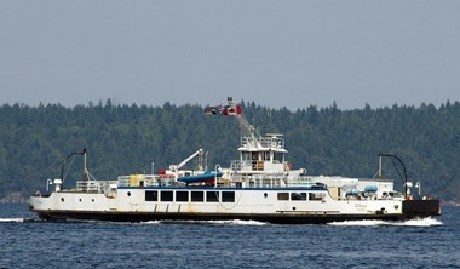The Mill Bay-Brentwood Bay ferry is returning to regular service on June 24, as B.C. Ferries gradually increases sailings from restrictions imposed to slow the spread of COVID-19.
The latest upgrades in service, effective to Sept. 7, were announced Friday after B.C. Ferries and the province of B.C. agreed to a new plan to gradually increase service levels imposed to limit the spread of the virus.
B.C. Ferries operates under an agreement with the province to deliver specified service levels along the coast.
It received permission from the province to drastically cut back on service as ridership plummeted in March amid virus fears. At the same time, it has introduced measures to enhance safety, such as closing food outlets. B.C. Ferries also received permission from regulator Transport Canada to allow passengers to remain in their cars on vehicle decks, in order to avoid contacting others on board.
B.C. Ferries is continuing to run at 50 per cent passenger capacity to meet physically distancing protocols.
As traffic starts to return to the ferry system and British Columbia begins to relax COVID-19 restrictions, B.C. Ferries is reintroducing service in a “thoughtful and controlled” way, the organization said Friday in a statement.
For northern and mid-coast communities, service will continue to operate at off-peak, or winter, service levels.
Summer direct service between Bella Coola to Port Hardy is still on hold. That run is considered a lifeline to tourism operators in the Cariboo and Chilcotin, who lobbied the province to have the service reinstated after the previous Liberal government axed it.
But service to and from the Southern Gulf Islands will increase to winter-schedule levels on June 9.
That’s when direct sailings between Tsawwassen and the Southern Gulf Islands will resume, and Long Harbour Terminal will reopen on Salt Spring Island. A planned second ferry is not coming into service on that route this summer.
Minor adjustments on inter-island routes to above the minimum levels will be seen in coming weeks, B.C. Ferries said. In some cases, sailings will be removed from schedules.
“B.C. Ferries understands the important role we play in British Columbia’s social and economic recovery,” said Mark Collins, chief executive and president.
“We remain committed to ensuring coastal communities have reliable access to essential goods and transportation for residents, emergency personnel and health-care workers. However, it will take some time before we return to pre-COVID-19 traffic demand and full service offerings.”



